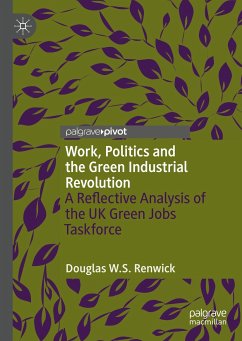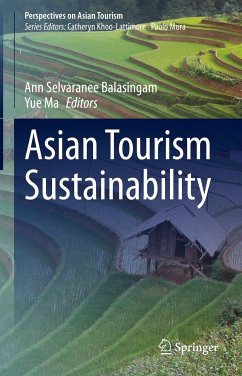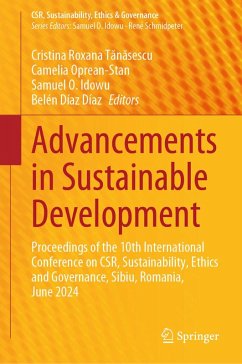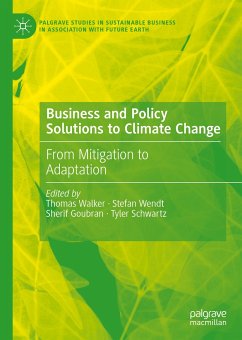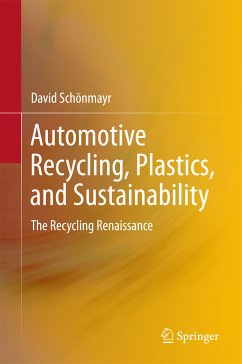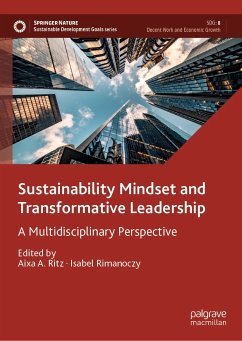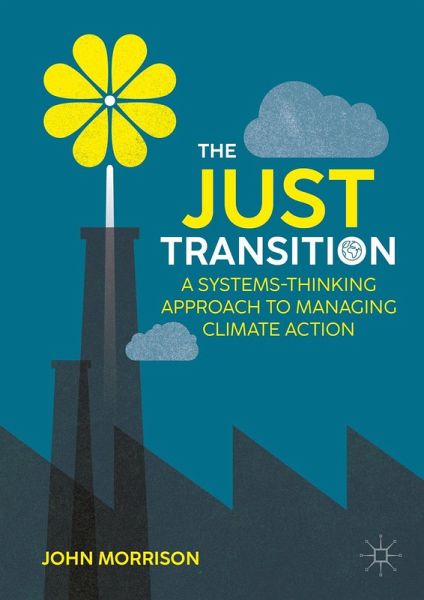
The Just Transition (eBook, PDF)
A Systems-Thinking Approach To Managing Climate Action
Versandkostenfrei!
Sofort per Download lieferbar
24,95 €
inkl. MwSt.
Weitere Ausgaben:

PAYBACK Punkte
12 °P sammeln!
Managing the climate transition will be one of the biggest challenges ever faced by business and government.While the technical and financial elements of climate transition are vast, the social challenges are even greater. If local populations and workers feel the transitions are not "just" they will resist, and that social opposition now represents one of the greatest barriers to reaching Net Zero by 2050. While the phrase 'Just Transition' was in the preamble to the 2015 Paris Climate Agreement, it is only now that business, finance and governments are starting to discuss what this might mea...
Managing the climate transition will be one of the biggest challenges ever faced by business and government.
While the technical and financial elements of climate transition are vast, the social challenges are even greater. If local populations and workers feel the transitions are not "just" they will resist, and that social opposition now represents one of the greatest barriers to reaching Net Zero by 2050. While the phrase 'Just Transition' was in the preamble to the 2015 Paris Climate Agreement, it is only now that business, finance and governments are starting to discuss what this might mean in practice.
Thousands of companies are now starting to develop transition plans alongside those of governments. This book shows how all managers can best integrate social elements into these plans, consult with the people most affected by the transition out of the high carbon economy, and ensure that what looks good on paper works in practice. It takes a systems-thinking approach, focusing on the interconnections and interdependence of environmental, social and governance issues.
The challenge is immense, and the changes will need to be profound. Each chapter in the book will look at the main domains in which management and policy challenges will be faced. From massively increasing the extraction of rare earth metals, most of which sit below, or adjacent to, indigenous land, to building the infrastructure needed to generate and distribute green energy, possibly over "Not in My Back Yard' objections, the task of business and government in ensuring that these changes are fair, and perceived as fair, is immense.
This book provides the roadmap for how to get there. Managing the social impacts of the climate transition will be one of the biggest challenges ever faced by business and government.
While the technical and financial elements of climate transition are vast, the social challenges are even greater. If local populations and workers feel the transitions are not "just" they will resist, and that social opposition now represents one of the greatest barriers to reaching Net Zero by 2050. While the phrase 'Just Transition' was in the preamble to the 2015 Paris Climate Agreement, it is only now that business, finance and governments are starting to discuss what this might mean in practice.
Thousands of companies are now starting to develop transition plans alongside those of governments. This book shows how all managers can best integrate social elements into these plans, consult with the people most affected by the transition out of the high carbon economy, and ensure that what looks good on paper works in practice. It takes a systems-thinking approach, focusing on the interconnections and interdependence of environmental, social and governance issues.
The challenge is immense, and the changes will need to be profound. Each chapter in the book will look at the main domains in which management and policy challenges will be faced. From massively increasing the extraction of rare earth metals, most of which sit below, or adjacent to, indigenous land, to building the infrastructure needed to generate and distribute green energy, possibly over "Not in My Back Yard' objections, the task of business and government in ensuring that these changes are fair, and perceived as fair, is immense.
This book provides the roadmap for how to get there. Managing the social impacts of the climate transition will be one of the biggest challenges ever faced by business and government.
Dieser Download kann aus rechtlichen Gründen nur mit Rechnungsadresse in A, B, BG, CY, CZ, D, DK, EW, E, FIN, F, GR, HR, H, IRL, I, LT, L, LR, M, NL, PL, P, R, S, SLO, SK ausgeliefert werden.




